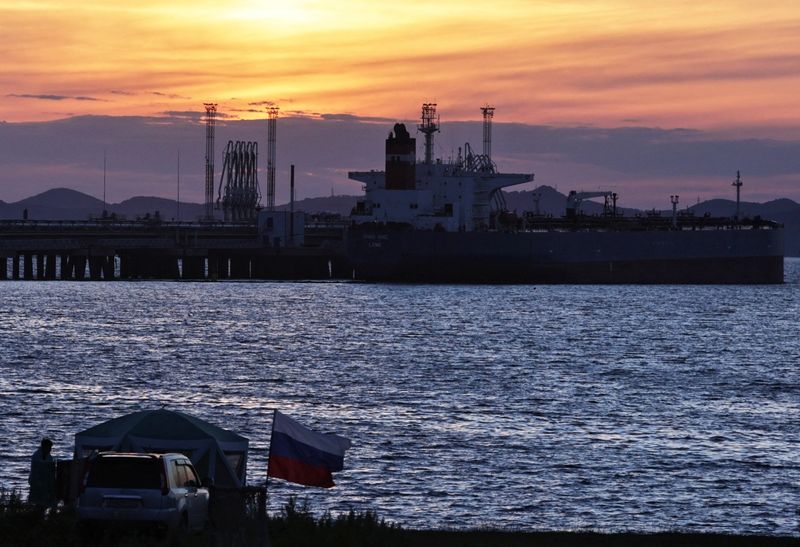
© Reuters. FILE PHOTO: A view shows Chao Xing tanker at the crude oil terminal Kozmino on the shore of Nakhodka Bay near the port city of Nakhodka, Russia August 12, 2022. REUTERS/Tatiana Meel/File Photo
By Alex Lawler
LONDON (Reuters) -Oil rebounded on Thursday after four sessions of decline, boosted by hopes that easing anti-COVID measures in China will revive demand and by signs that some tankers carrying Russian oil have been delayed after a G7 price cap came into effect.
China on Wednesday announced the most sweeping changes to its resolute anti-COVID regime since the pandemic began, while at least 20 oil tankers faced delays in crossing to the Mediterranean from Russia’s Black Sea ports.
rose 29 cents, or 0.4%, to $77.46 a barrel by 0905 GMT, while U.S. West Texas Intermediate (WTI) crude gained 73 cents, or 1%, to $72.74.
“Today, we do see some green price action,” said Naeem Aslam, analyst at Avatrade. “Prices are oversold due to the intense sell-off for the past few days. However, the price action still doesn’t show a strong bullish bias.”
Both Brent and hit 2022 lows on Wednesday, unwinding all the gains made after Russia’s invasion of Ukraine exacerbated the worst global energy supply crisis in decades and sent oil close to its all-time high of $147.
Western officials were in talks with Turkish counterparts to resolve the tanker queues, a British Treasury official said on Wednesday, after the G7 and European Union rolled out new the restrictions on Dec. 5 aimed at Russian oil exports.
The queues suggest that “available supply from the Black Sea is already affected by the punitive measure,” said Tamas Varga of oil broker PVM.
“In a healthy economic climate, such a development would be the equivalent of firing the starting gun in the race back to $100.”
Concerns of economic slowdown, weakening fuel demand and the prospect of more interest rate hikes in the United States weighed. The Federal Reserve is widely expected to raise interest rates by 50 basis points next week.
While U.S. crude inventories fell last week, gasoline and distillate inventories surged, adding to concern about easing demand. [EIA/S]





